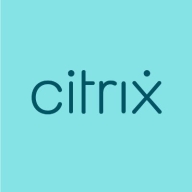

Citrix Gateway and F5 BIG-IP Access Policy Manager compete in application delivery and security. F5 BIG-IP APM generally has the advantage due to its superior security capabilities and customization options.
Features: Citrix Gateway offers secure SaaS access, load balancing, and multi-format deployment, with notable scalability, stability, and security features. F5 BIG-IP APM provides virtual IP creation, extensive protocol support, and strong integration with authentication systems, addressing complex issues effectively.
Room for Improvement: Citrix Gateway needs better integration, enhanced user training, and simplified deployment processes. Areas needing improvement include multi-factor authentication and faster cloud capabilities. F5 BIG-IP APM can enhance cloud integration, improve user interface speed, and expand comprehensive automation features.
Ease of Deployment and Customer Service: Citrix Gateway is popular in on-premises and cloud environments, with moderate support ratings but opportunities for faster response times and better training materials. F5 BIG-IP APM enjoys a positive reputation for support and hybrid cloud capabilities, noted for its responsiveness and efficiency.
Pricing and ROI: Citrix Gateway is seen as expensive due to extra licensing fees, with ROI stemming from enhanced security and deployment flexibility. F5 BIG-IP APM, a premium product with substantial upfront costs, provides value through its superior security, which justifies the expense. Both solutions require careful financial planning, with Citrix offering more purchasing options.
Citrix Gateway secures our environment from potential threats, which can save substantial financial resources, especially in preventing data breaches or ransomware attacks.
Very experienced engineers contact you in order to troubleshoot the problem.
While there are multiple support tiers with priority response times of around 30 minutes, there appears to be a limitation in the number of technical teams who can immediately understand and resolve issues.
If there is a solution, they don't always communicate it.
Most of the technical support is managed in-house due to our extensive experience with F5 products.
F5 technical support is responsive and helpful.
The solution features high availability, supporting both active-passive and active-active deployments to ensure constant product availability.
I believe that the scalability of Citrix Gateway depends on the project's requirements, as it can vary from simple load balancing to extensive Web Application Firewall implementations.
Citrix Gateway is not for small companies; it's for medium companies because the pricing is better for more users.
The product's flexibility and company culture contribute to resolving these challenges.
I would rate the scalability of F5 BIG-IP Access Policy Manager (APM) between seven and eight.
I find Citrix products to be very stable.
On a scale from one to ten for stability, I would rate F5 BIG-IP Access Policy Manager (APM) a ten.
Sometimes, the logs are not quite informational or easy to understand.
At this time it costs 35% more than other solutions.
The main purpose of Citrix Gateway is to enforce the appropriate level of access to the correct user on the proper device under the correct conditions.
The ability to run the Anycast feature would be valuable, as the current solution only operates on-premises.
If I could copy and paste objects instead of picking and configuring them from scratch each time, it would be great.
The main improvement needed for F5 BIG-IP Access Policy Manager (APM) is to integrate into the cloud-delivered services from F5.
I consider Citrix Gateway to be an expensive solution, generally ranging from $5,000 to $15,000 yearly, depending on the model.
The price is one aspect, but technically it is complete.
F5 products are more expensive than other solutions but are valued for their quality and reliability.
The product effectively helps me protect the organization's network from potential threats, thereby securing our environment from hackers and ransomware attacks.
It's easy to scale and easy to implement.
Secure SaaS access is particularly valuable as it ensures that SaaS-based applications are delivered securely.
It provides robust security and offers integration with multi-factor authentication systems, which is crucial for an organization's security policy.
APM is quite flexible for customers to use, providing secure remote access through various host-checking conditions for both machines and users.
F5 BIG-IP Access Policy Manager (APM) provides excellent WAF and bot defense solutions.
| Product | Market Share (%) |
|---|---|
| Citrix Gateway | 11.8% |
| F5 BIG-IP Access Policy Manager (APM) | 8.4% |
| Other | 79.8% |
| Company Size | Count |
|---|---|
| Small Business | 15 |
| Midsize Enterprise | 9 |
| Large Enterprise | 16 |
| Company Size | Count |
|---|---|
| Small Business | 9 |
| Midsize Enterprise | 1 |
| Large Enterprise | 9 |
Citrix Gateway is a customer-managed solution that can be deployed on premises or on any public cloud, such as AWS, Azure, or Google Cloud Platform. Citrix Gateway provides users with secure access and single sign-on to all the virtual, SaaS and web applications they need to be productive.
F5 BIG-IP Access Policy Manager (APM) is an access management proxy solution for managing global access to the enterprise networks, cloud providers, applications, and application programming interfaces (APIs). Through a single management interface, BIG-IP APM consolidates remote, mobile, network, virtual, and web access.
BIG-IP APM can also serve as a bridge between modern and classic authentication and authorization protocols and methods. For applications which are unable to support modern authentication and authorization protocols, like SAML and OAuth with OIDC, but which do support classic authentication methods, BIG-IP APM converts user credentials to the appropriate authentication standard supported by the application.
BIG-IP APM Benefits:
BIG-IP APM Features:
Reviews from Real Users
Below are some reviews and helpful feedback written by BIG-IP APM users.
Mahmmoud Rabie, Senior Site Reliability Engineer, writes that BIG-IP APM is "A highly stable solution for load balancing, but the initial setup is complex."
Clyde Livingston, Senior Process Specialist at Telstra, says that BIG-IP APM is "Easy to use, useful access remotely, but lacking stability."
Chris Lam, Senior Solution Consultant at Macroview Telecom Limited, states that BIG-IP APM is "Useful for remote access VPN and VPI integration with VMware.
We monitor all SSL VPN reviews to prevent fraudulent reviews and keep review quality high. We do not post reviews by company employees or direct competitors. We validate each review for authenticity via cross-reference with LinkedIn, and personal follow-up with the reviewer when necessary.